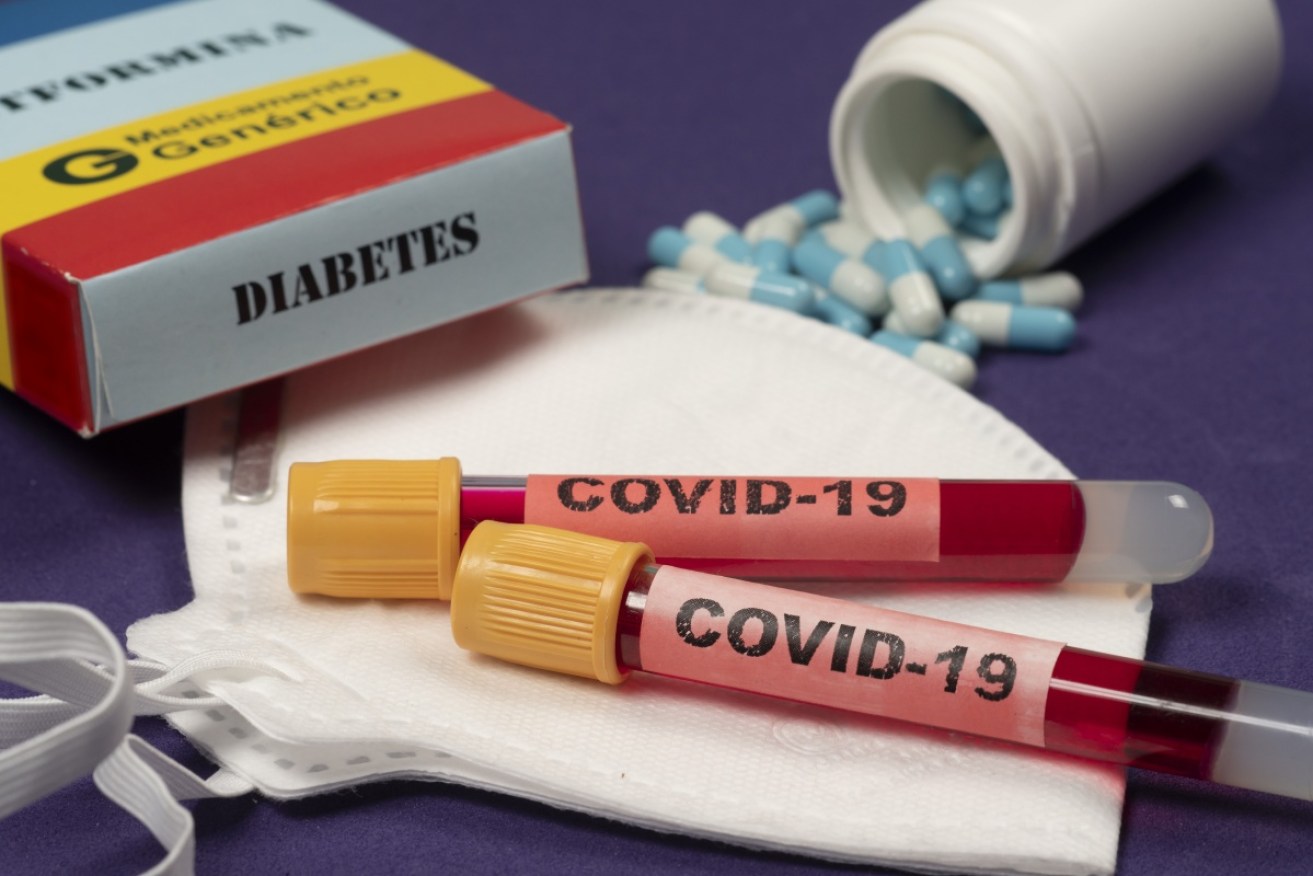COVID-19 increases short-term risk of diabetes and cardiovascular issues: Study


The risk for developing diabetes remains elevated by 27 per cent for up to 12 weeks after COVID-19 infection. Photo: Getty
COVID-19 patients are more likely to develop cardiovascular diseases and diabetes soon after infection, according to a report from the UK.
The risks are significant, particularly in the first three months after catching the virus, but they tend to drop away.
The researchers from King’s College London recommend that “doctors advise their patients who are recovering from COVID-19 to reduce their risk of diabetes through a healthy diet and exercise”.
How was this discovered?
It’s now well recognised that COVID-19, on top of its own set of symptoms, “can cause disease throughout the body, likely by triggering pathways that cause inflammation”.
Indeed, two years ago, early in the pandemic, The New Daily reported that COVID-19 might be causing healthy people to develop type 2 diabetes.
The new study not only confirms this to be the case, but gives an idea of how often this is happening.
It also looks at the incidence of heart disease in previously healthy patients.
They did this by analysing medical records from more than 428,000 COVID-19 patients, and the same number of control individuals (people who had never had the disease), matched by age and sex.
The analysis showed that COVID-19 patients had 81 per cent more diagnoses of diabetes in the first four weeks after contracting the virus.
The King’s College researchers also found that the patients’ risk remained elevated by 27 per cent for up to 12 weeks after infection.
COVID-19 was also associated with a six-fold increase in cardiovascular diagnoses overall, “mainly due to the development of pulmonary embolism (blood clots in the lungs) and irregular heartbeat”.
The risks don’t appear to be long term
Those patients who didn’t go on to develop heart disease or diabetes were found, in terms of their risk, to return to normal, eventually.
The return to baseline for the diabetes risk was nearly six months.
The risk of a new heart disease diagnosis began to decline five weeks after infection and returned to baseline levels or lower within 12 weeks to one year.
That’s a potentially long time to wait for the all clear – but “fortunately there does not appear to be a long-term increase in the incidence of these conditions for patients who have contracted the virus”.
Lead author Dr Emma Rezel-Potts, a research associate in translational epidemiology and public health, said in a prepared statement: “Whilst it is in the first four weeks that COVID-19 patients are most at risk of these outcomes, the risk of diabetes mellitus remains increased for at least 12 weeks.
“Clinical and public health interventions focusing on reducing diabetes risk among those recovering from COVID-19 over the longer term may be very beneficial.”








